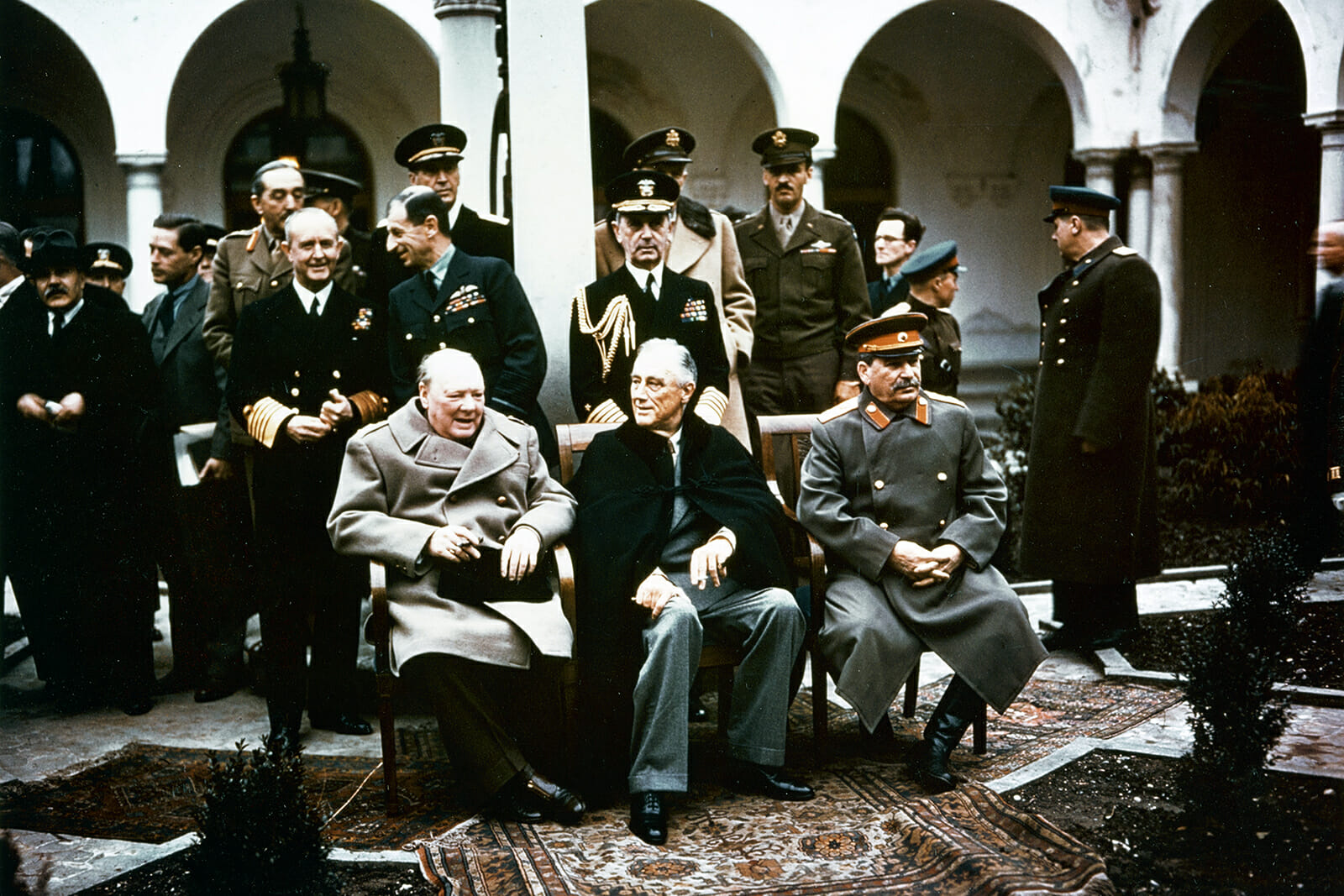
The New American Century, Different from the Old American Century
The emergence of the United States as a world superpower after World War Two was a result of the widespread destruction throughout the world that the war had caused. The United States, protected by two large oceans, suffered no material damage and emerged from the war not only as the dominant manufacturing power in the world, but also the world’s largest creditor nation. It’s continuing involvement in world affairs after World War Two was more a reaction to the rise of communism in Eastern Europe than a desire on the part of the United States to dominate the world. The United States regarded the rise of communism as an existential threat to its way of life, which was centered on property rights and the theory of capitalism. It was for this reason that President Harry Truman adopted the policy of containment as enunciated by George Kennan’s long telegram in February 1946.
The fall of the Soviet Union in December of 1991, removed the rationale as to why the United States had become so involved in world affairs after World War Two. With the dissolution of the Soviet Union in 1991, the United States for a time remained the lone superpower in the world. From 1991 to 2003, the United States became a unipolar power. However, the invasion of Iraq by the United States in March of 2003 allowed other powers, most notably China, to emerge on the world scene with each world power following a foreign policy meant to maximize its influence at the expense of other nation-states. The rise of these new world powers challenged the rules-based order which had risen almost immediately after World War Two. When the United States became mired in the quicksand of Iraq and unable to deal with other challenges, its unipolarity position in the world came to an end.
World Politics and the Balance of Power Prior to World War Two
Prior to World War Two, the world was engaged in a multipolar balance of power system, and each nation-state was acutely aware of the global balance of power and jealous of their prerogatives. Each nation-state competed with each other, formed alliances and routinely engaged in wars in competition for access to raw materials and struggled to achieve dominance over other weaker powers.
The balance of world trade existed in the form of colonial powers extracting raw materials from their colonies, and then shipping finished goods to their colonies for the benefit of the colonial power. The world powers were mostly European with the exception of the Imperial Japanese Empire which arose after the defeat of Russia in the Russo-Japanese war which lasted from 1904 to 1905. Historians regard this period of time in world history as colonialism.
This type of world political system resulted in numerous wars, which ultimately culminated in World War One and World War Two, the latter which brought the era of colonialism to an end. The end of World War Two brought about a world dominated by the United States. While the invasion of Iraq in 2003 reduced American economic, political and military power throughout the world, the United States remains the world’s only superpower. However, this power is being challenged by a growing multi-polar world and the United States is unlikely to return to its moment of unipolarity.
The American Dominance of the World Commons
Prior to World War Two, the United States had been an insular power. Wealthier than the British Empire, and with the potential of fielding huge armies and navies, the United States had turned its back on the world after World War One. While the United States held no colonies, with the exception of the Philippines which it had acquired after the Spanish-American War, every other world power had to take into account the latent power of the United States when it analyzed its standing in the world in relation to its own ambitions and aspirations.
Understanding that if the old colonial order were to return after the end of the war that the chances of another world war would increase, the United States realized that it would need to sponsor a new world order based on economic fundamentals to try and prevent the use of violence in world politics. To accomplish this end, the United States called for an allied conference to take place at Bretton Woods, New Hampshire in July of 1944. The conference established the International Bank for Reconstruction and Development (IRBD). The IRBD is one of the five members of the World Bank Group. The Bretton Woods Conference also established the International Monetary Fund (IMF). Another aspect of the conference was to provide for other agreements to encourage other economic cooperation to foster peaceful world trade rather than the use of war to compete for natural resources and access to world markets. The results of the conference have been far-reaching and have endured after 75 years of economic cooperation and relative world peace. It should be noted here that one aspect of the conference has not survived; the use of gold to support the issuance of currency by nation-states. The U.S. abandoned the gold standard in 1971. Today no nation pegs its currency to its gold reserves, and the issuance of currency is based on a fiat monetary policy.
Implicit in the agreement at Bretton Woods was that the United States, with its vast navy and military power, would protect the global commons allowing for a secure and free trade zone for the nations of the world. For 75 years the U.S. Navy has protected the global commons with its navy and currently provides protection with its 11 supercarriers. While the U.S. Navy still has overwhelming dominance on the open seas, China is currently undertaking a rapid naval construction of its Navy. It has constructed one carrier and has another carrier under construction, though it has yet to build an aircraft carrier matching either the Nimitz-class carriers or the new Ford-class carriers. The question before the United States now is whether it needs to protect the global commons other than the sea lanes it wants kept secure for its own purposes.
The Changing National Security Interests Of the United States
Historically, as mentioned above, the United States has been an insular power. With friendly neighbors to the north and south, and bordered on its western and eastern borders with large oceans, the United States is fortunate as regards to its territorial security. Before World War Two, the United States disdained alliances with other powers, and after World War Two only became a guarantor of the global commons in its fight against what it considered an existential threat by the rise of world communism. Its foreign policy was guided not only by George Kennan’s long telegram, but also by the adoption by the Truman administration of NSC 68.
Today, with no existential threat to the United States, the United States is again starting to turn inwards and resume its status as an insular power.
With the advent of the shale oil revolution making the United States energy self-sufficient, the United States no longer has any economic interest in ensuring that the middle east oil fields are protected, given its large reserves of shale oil, which does not include the estimated 3 trillion barrels of shale oil in the Green River Formation. All told, the United States has a reserve of some 5 trillion barrels of shale oil.
The United States has no need to be concerned with world trade except for those nations that it considers necessary to its national security. Indeed, while 12% of the United States GDP depends on foreign trade, Canada and Mexico are its largest trading partners and account for 6% of foreign trade of the United States. They are also its only land-based neighbors. While Japan, the Philippines, Australia, the United Kingdom, Taiwan, and South Korea are necessary trading partners, the United States has no other overriding national security interest in continuing its role as the guarantor of the global rules-based commons.
The United States would continue to need its large navy to protect its sea lanes to its Asian and English trading partners.
With the United States turning inward, and with the cost of creating energy with the increasingly availability of natural gas to power an industrial base, manufacturing would increase in the United States. Natural gas is much easier than coal to extract, cleaner to burn and hence cheaper to use as an energy agent. With U.S. manufacturing increasingly depending on automation and robotics in manufacturing, the cost of manufacturing will continue to decrease.
The United States is blessed with abundant natural resources, an educated workforce, and is considered by the rest of the world as the safest place to deposit its wealth.
Investors worldwide would happily accept a negative interest rate to ensure the preservation of their capital. The overwhelming might of the United States military means the United States is territorially secure.
With these overwhelming advantages, the new American century will look remarkably like the old century, without the entangling alliances which restrict the ability of the United States to survive and prosper in the coming years.

